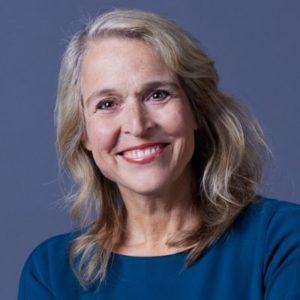Dr. Rachel Yehuda is a psychiatrist, neuroscientist, and leading expert in the neurobiology of traumatic stress. Her research has centered on observing epigenetic changes and intergenerational effects from trauma. She is also working to develop predictability around treatment responsiveness by patients with PTSD.
After graduating with a B.S. in Psychology from Touro College, Dr. Yehuda earned her Master’s degree in Biological Psychiatry and Ph.D. in Psychology and Neuroscience from the University of Massachusetts, Amherst. She then completed a two-year postdoctoral fellowship in Biological Psychiatry at Yale School of Medicine.
Dr. Yehuda joined the Department of Veterans Affairs in 1989 as a Research Scientist, where she participated in some of the earliest clinical studies of the biology of PTSD. In 1991, she helped to establish the PTSD program – a collaborative clinical and academic initiative between the Bronx’s James J. Peters VA Medical Center and Mount Sinai. Dr. Yehuda continues to oversee this work as the Director of Icahn School of Medicine’s Division of Traumatic Stress Studies. She has directed the VA Center’s Mental Health services since 2009.
Dr. Yehuda has taught psychiatry for more than three decades at Icahn, becoming Vice-Chair of the department in March 2017. She directs the school’s Yehuda Lab, whose work is described on its website as multidisciplinary research in “a wide range of endocrine, molecular, and brain biomarkers for PTSD and resilience, and…epigenetic mechanisms associated with intergenerational trauma.” In 2020, she began leading the Lab’s Center for Psychedelic Psychotherapy and Trauma Research. The Lab is investigating MDMA-assisted psychotherapy for military veterans with PTSD, as well as psilocybin’s potential to treat the effects of intergenerational trauma, including racial trauma. Employing stem cell technology to elucidate gene-environment interactions, the Lab’s research has supported improved treatment and prevention approaches for PTSD. Dr. Yehuda’s leadership earned her election to the National Academy of Medicine in 2019.
Prior to her positions at Icahn and the VA, Dr. Yehuda provided psychiatric assessment and treatment planning services at Yale Psychiatric Institute, followed by two years as an Assistant Professor at the University of Connecticut. There, she established research programs to study PTSD and the long-term biological effects of Holocaust survivors.
Dr. Yehuda is a prolific author of literature on the neurobiology of traumatic stress. Her works include books such as Psychobiology of Posttraumatic Stress Disorder and several hundred academic publications. Among them are papers discussing psychedelics as potential treatments for trauma. A brief article by Dr. Yehuda in Neuropsychopharmacology from 2020 summarizes the “promise” of MDMA-assisted psychotherapy for PTSD.1 She contributed to a 2021 piece in Frontiers in Neuroscience addressing the significance of a psychedelic-induced “critical period” of brain plasticity which primes healing processes in psychotherapy.2
In conversation with Bessel van der Kolk, Dr. Yehuda expounded upon the importance of studying what creates long-term changes in traumatized patients. In other words, we must examine neurobiology longitudinally – not only the pharmacology of temporary brain states under the influence of psychedelics.
Podcast appearances where Dr. Yehuda discusses psychedelic treatment potential include interviews with the Integrative Psychiatry Institute, STEM-Talk, PsyTech, Freakonomics, and Psychedelics Today. In the Integrative Psychiatry Institute interview, she underscored the benefits of psychedelic-assisted psychotherapy in treating complex trauma, or trauma about which a client possesses no clear narrative: “…an advantage of psychedelic psychotherapy model is that it doesn’t presume specific trauma but allows the altered state of consciousness and two therapists by your side to guide an exploration, to kind of see what gets identified.” On Psychedelics Today, she encouraged a cautious approach to psychedelic clinical research, stating, “We want the medicine to speak for itself in clinical trials and we want to pay very careful attention to people that don’t respond the way the zeitgeist is telling us that everybody will, because we want to learn from everybody….I think the more sober and conservative we are at this stage, the higher the yield we will have in the future in terms of a very big footprint for these approaches.”
Dr. Yehuda spoke on the 2019 Entheogeneration panel about current knowledge and gaps of psychedelic medicine, and at ICPR 2020, among other events.
Dr. Yehuda’s extensive list of scientific publications is available on her ResearchGate page.
